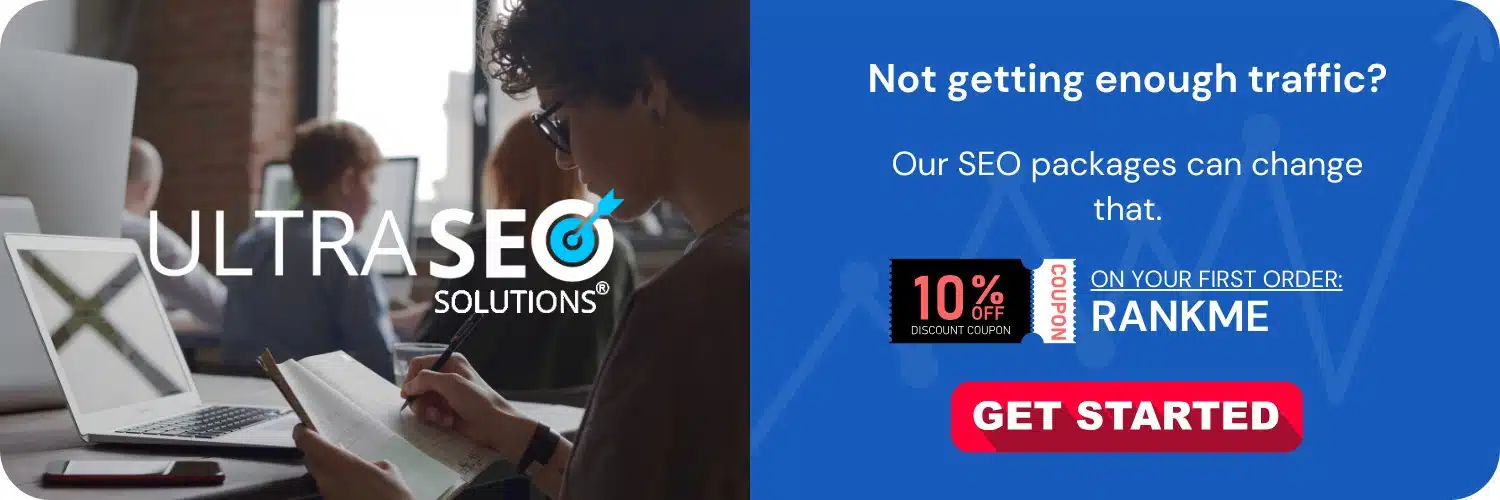
The best SEO practices for a nutritionist’s website focus on improving site visibility through keyword optimization, high-quality content creation, local SEO, mobile optimization, site-speed enhancement, user experience refinements, and building a strong backlink profile. Each of these components plays a critical role in how well the website ranks in search engine results, which will ultimately help attract more clients seeking nutritional guidance.
Comprehensive Keyword Research
Understanding Your Audience
Before you write a single word of content, it’s crucial to understand the search behavior of your target audience. For a nutritionist’s website, keywords might range from general terms like “healthy eating” to more specific phrases such as “personalized nutrition plans” or “dietitian for weight loss”. Use tools like Google Keyword Planner or SEMrush to uncover the terms people are using to find nutrition-related information.
Finding Long-Tail Keywords
While high-traffic keywords are desirable, don’t overlook long-tail keywords – these are longer and more specific queries that often lead to higher conversion rates. For example, “best nutritionist for vegan diets in [Your City]” might not have the same search volume as “nutritionist,” but it’s likely to attract a highly targeted audience.
Integrating Keywords Naturally
Once you’ve identified your keywords, integrate them seamlessly into your content, meta tags, and URLs. Ensure it reads naturally – stuffing keywords is a surefire way to earn penalties from Google and turn off potential clients.
Creating High-Quality Content
Educational Blog Posts
A nutritionist’s site should be a hub of informative content. Write comprehensive blog posts on a variety of topics such as the benefits of different diets, meal planning strategies, or understanding macronutrients.
Engaging Visuals and Media
People tend to engage more with visual content. Incorporate infographics, videos, and images to explain complex nutritional information in an accessible way. Always remember to tag your media with descriptive ALT tags that include your target keywords.
Refreshing Old Content
SEO isn’t just about creating new content; it’s also important to refresh old content to keep it current and relevant. Periodically update your posts with the latest research or nutritional trends to maintain their value.
Optimizing for Local SEO
Google My Business
Claim and optimize your Google My Business listing. Ensure that your business name, address, and phone number are consistent across all platforms. Regularly update your profile with fresh content, such as posts about your services or upcoming events.
Local Keywords
Incorporate local keywords into your content, like the city or neighborhood you serve. This will help you appear in search results when potential clients are looking for nutritionist services in their area.
Local Citations and Directories
Get listed in local business directories and ensure your information is consistent and accurate. This not only improves your visibility but also contributes to your backlink profile, which can enhance SEO.
Improving Mobile Optimization
With more searches happening on mobile devices, it’s imperative that your website is fully optimized for mobile users. This means having a responsive design that adjusts to different screen sizes, quick loading times, and easy navigation. Google predominantly uses mobile-first indexing, so if your site isn’t mobile-friendly, you’re likely missing out on a significant amount of potential traffic.
Enhancing Site Speed
Site speed is a critical factor in user experience and search rankings. Use tools like Google’s PageSpeed Insights to analyze your site’s performance and follow the recommendations to make your website faster. This may include optimizing images, minifying CSS and JavaScript files, leveraging browser caching, and reducing server response times.
Refining User Experience (UX)
A website that is difficult to navigate or confusing is sure to turn away potential clients and negatively affect SEO. Ensure your site is intuitively structured, with a clear menu, prominent service pages, and a hassle-free way to contact you. Additionally, having an FAQ section can help answer common questions while targeting additional keywords.
Building a Strong Backlink Profile
Backlinks from authoritative and relevant sites signal to search engines that your site is a credible source of information. Reach out to industry blogs, nutrition forums, and related organizations to guest post or get your website featured. Remember, it’s not just the quantity of backlinks, but the quality that matters.
Track Your Backlinks
Keep an eye on the backlinks your website acquires. Use SEO tools to monitor your backlink profile and ensure the links come from reputable sources. Disavow any spammy or harmful links through Google Search Console.
Implement Structured Data Markup
Structured data helps search engines understand the content on your website. Implement schema markup for reviews, services, and articles to enhance how your pages appear in search results, often giving rise to rich snippets that improve click-through rates.
Social Media Integration
While not a direct ranking factor, social signals from platforms like Facebook, Instagram, and Twitter can improve your website’s visibility. Share your content, engage with followers, and participate in relevant communities. These efforts can drive traffic to your website and lead to natural backlinks.
Regular SEO Audits
Conducting regular SEO audits is crucial to identify areas for improvement on your website. This includes checking for broken links, auditing your content for relevance and freshness, evaluating your site’s mobile readiness, and ensuring your on-page SEO is up to date with the latest best practices.
Safe and Secure Website
Having a secure website (HTTPS instead of HTTP) is essential for protecting your clients’ data and improving trust. Ensure that your security certificates are up to date and that any information submitted through your site is encrypted.
Finishing Thoughts
Building and maintaining SEO for a nutritionist’s website is a continuous process that involves many different components. Starting from keyword research and content creation to technical aspects such as site speed and security, it’s important to attend to each detail with the commitment to providing the best user experience. Remember, SEO is not a one-time task but an ongoing strategy that evolves with search engine algorithms and industry trends. Stay up to date with best practices, and don’t hesitate to tweak your strategy as needed to maintain high search engine rankings and attract new clients.“`html
Frequently Asked Questions
What are the core SEO strategies for a nutritionist’s website?
The core SEO strategies for a nutritionist’s website include keyword research to identify relevant terms your audience searches for, high-quality content creation that is authoritative and informative, on-site optimization including meta tags and headings, mobile-friendliness, fast loading times, and acquiring backlinks from reputable sources within the health and wellness industry.
How important is keyword research for a nutritionist’s website?
Keyword research is vital in understanding what potential clients are searching for when looking for nutrition advice. By targeting the right keywords, you can drive more targeted traffic to your site and increase your visibility in search engine results pages (SERPs).
Can blogging benefit my nutritionist’s website SEO?
Absolutely. Blogging can be a powerful tool for SEO as it allows you to create fresh, relevant content that can rank for a variety of keywords. It also provides value to your visitors and can help establish your authority in the nutrition field.
What role does mobile-friendliness play in SEO?
Mobile-friendliness is crucial for SEO as more people access the internet via mobile devices. Google uses mobile-friendliness as a ranking factor, so a mobile-responsive site is essential for good SEO performance.
How should a nutritionist handle local SEO?
For a nutritionist, local SEO involves optimizing your website to appear in local search results. This includes claiming your Google My Business listing, adding your business to local directories, and ensuring your name, address, and phone number (NAP) are consistent across the web.
Is social media important for a nutritionist’s website SEO?
While social media doesn’t directly affect SEO rankings, it can have a significant influence on your web presence. Sharing content on social media can increase your visibility, generate traffic to your site, and help with link-building efforts.
What is the impact of user experience (UX) on SEO for a nutritionist’s website?
User experience (UX) directly impacts SEO as search engines favor websites that provide a good user experience. Factors like site structure, navigation, and page speed all influence how long visitors stay on your website, affecting your SEO ranking.
How can I measure the SEO success of my nutritionist’s website?
You can measure the SEO success of your nutritionist’s website by using analytics tools like Google Analytics to track traffic, user behavior, conversion rates, and your website’s ranking for targeted keywords. Setting up and monitoring SEO-specific goals in these tools can help you gauge your site’s performance.
“`






